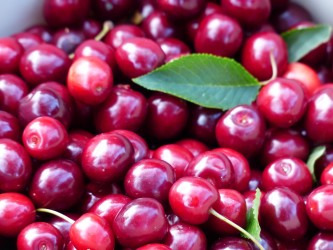lifestyle
Cranberry Juice and Constipation: Everything You Need to Know
On This Page

Can cranberry juice really help with constipation? Find out what the research says and how else cranberry juice can support your health.
Cranberry juice is a well known tart drink commonly consumed to support urinary tract health.
However, a question people often ask about this drink is whether cranberry juice helps you poop if you’re constipated.
We’ll dig into why cranberry juice may or may not help with constipation, as well as other questions commonly asked about cranberry juice.
What causes constipation?
Constipation consists of infrequent bowel movements or difficult passage of stools. Often this is described as having fewer than three bowel movements per week. While occasional constipation is common, it should definitely be addressed if happening chronically.
Healthy bowel movements require several functions working together, including but not limited to adequate fluid and fiber intake, healthy diet overall, regular movement and exercise, and proper nerve and muscle function.
Some of the most common causes of constipation include inadequate hydration and fiber intake.
How might cranberry juice help?
Cranberry juice is a known superfood, largely due to its beneficial antioxidant properties. Pure, unsweetened cranberry juice is filled with antioxidants like vitamins C and E, as well as copper, vitamin K, and vitamin B6.
Cranberry juice contains several antioxidants including proanthocyanidins, which research suggests can support a healthy urinary tract, as well as promote cardiovascular, gut, immune, and even periodontal health.
For example, research shows that regular daily cranberry juice consumption can boost the immune system (one study used about 2 cups per day), as well as increase total antioxidant capacity in the body.
A growing body of evidence also suggests that cranberry juice may have favorable effects on cardiometabolic health, such as increases in HDL cholesterol as well as reduced oxidized LDL cholesterol.
Cranberry juice for gut health
The antioxidant and polyphenol properties in cranberry juice can also support gut health. Cranberries contain proanthocyanidins, which are well known to promote healthy gut bacteria levels.
One study showed that drinking 8 ounces of cranberry juice twice daily for 6 weeks resulted in increased levels of beneficial bacteria.
Proanthocyanidins can also prevent adhesion of bacteria to our body’s cell walls, which can prevent colonization of unwanted bacteria, both in the gut and in the urinary tract.
In addition, these compounds in cranberry juice can also inhibit biofilm formation by bacteria. It is well known that bacteria within biofilms are more resistant to antibiotics and the body’s own immune system defenses.
Cranberry juice for hydration
As a liquid containing a high water content, cranberry juice can definitely support your daily fluid intake goals. A common rule of thumb for daily water intake is to drink half of your body weight in ounces.
However, be cautious with juice intake since juices contain a higher concentration of sugar than their whole fruit counterparts. According to the American Heart Association, you should limit added sugar intake to 24-36 grams or less.
When choosing the best cranberry juice for health benefits, it’s best to choose 100% cranberry juice and avoid cranberry juice cocktails, which contain added sugar. Studies also show that not-from-concentrate cranberry juice may be a better option than reconstituted juice, due to higher levels of antioxidants.
Due to the high sugar content of cranberry juice, like most juices, you’re better off getting the majority of your daily fluid intake from water instead.
How much cranberry juice should I take for constipation?
There are actually no studies that report cranberry juice to help with constipation. Prune juice, however, can help make you poop due to its high content of the natural laxative sorbitol.
Better options to naturally support regular bowel movements include adequate hydration, eating enough fiber, and getting regular exercise.
Incorporating whole or minimally processed plant foods with meals is a great way to get more fiber at each meal. General recommendations for daily fiber intake are about 25 g or more for women and 38 g or more for men.
Some examples of naturally high fiber foods include fruits like prunes, pears, kiwis, and apples. Chia and flax can also help get you to a daily goal of 25 grams or more of fiber daily.
For example, Care/of’s Chia-Flax blend contains 4 g of fiber per scoop!
Other frequently asked questions
Here are some other common cranberry juice questions with answers.
Does cranberry juice make your poop black?
Any juice should not make your poop black.
If your stools are black, that can mean something else is going on. Talk to your doctor if you experience black stools, which can be a sign of internal bleeding or other digestive issues. Some medications can also make stools black.
Some foods can indeed change the color of stool. For example, beets can make your stools red in color. Cranberry juice may also turn some stools a tint of red. This phenomenon is not usually cause for alarm.
Does cranberry juice make you gassy?
Cranberry juice should not cause gassiness. If you experience excess gas, this may be a sign that you are in need of digestive support.
Can cranberry juice cause diarrhea?
Loose stools or diarrhea are not associated with cranberry juice. If you experience these issues, you should seek professional help for addressing digestive health.
Does cranberry juice make you pee?
As with most fluids, drinking cranberry juice can make you urinate. But cranberry juice does not have any diuretic properties; in this respect it’s unlike coffee, which can make you urinate more often.
What are the other benefits of cranberry juice?
Cranberry juice may help:
- Promote levels of healthy gut bacteria due to its polyphenol content
- Inhibit growth of unwanted gut bacteria through inhibiting adhesion and biofilm formation
- Increase HDL cholesterol and reduce oxidized LDL cholesterol levels
- Increase antioxidant capacity in the body
- Boost the immune system
- Prevent and manage periodontal issues through beneficially inhibiting bacterial action and dental bone breakdown
Key takeaways
While cranberry juice may not be of much help for making you poop, there are other ways in which cranberry juice may be beneficial to your health. Cranberry juice may help you support the health of your urinary tract health, heart, immune system, gut, and mouth. Some research has shown regular intake of up to 1-2 cups per day of no-sugar-added, 100% cranberry juice not from concentrate may have the best health benefits. For support with constipation, you are better off with focusing on supporting hydration and fiber intake.



